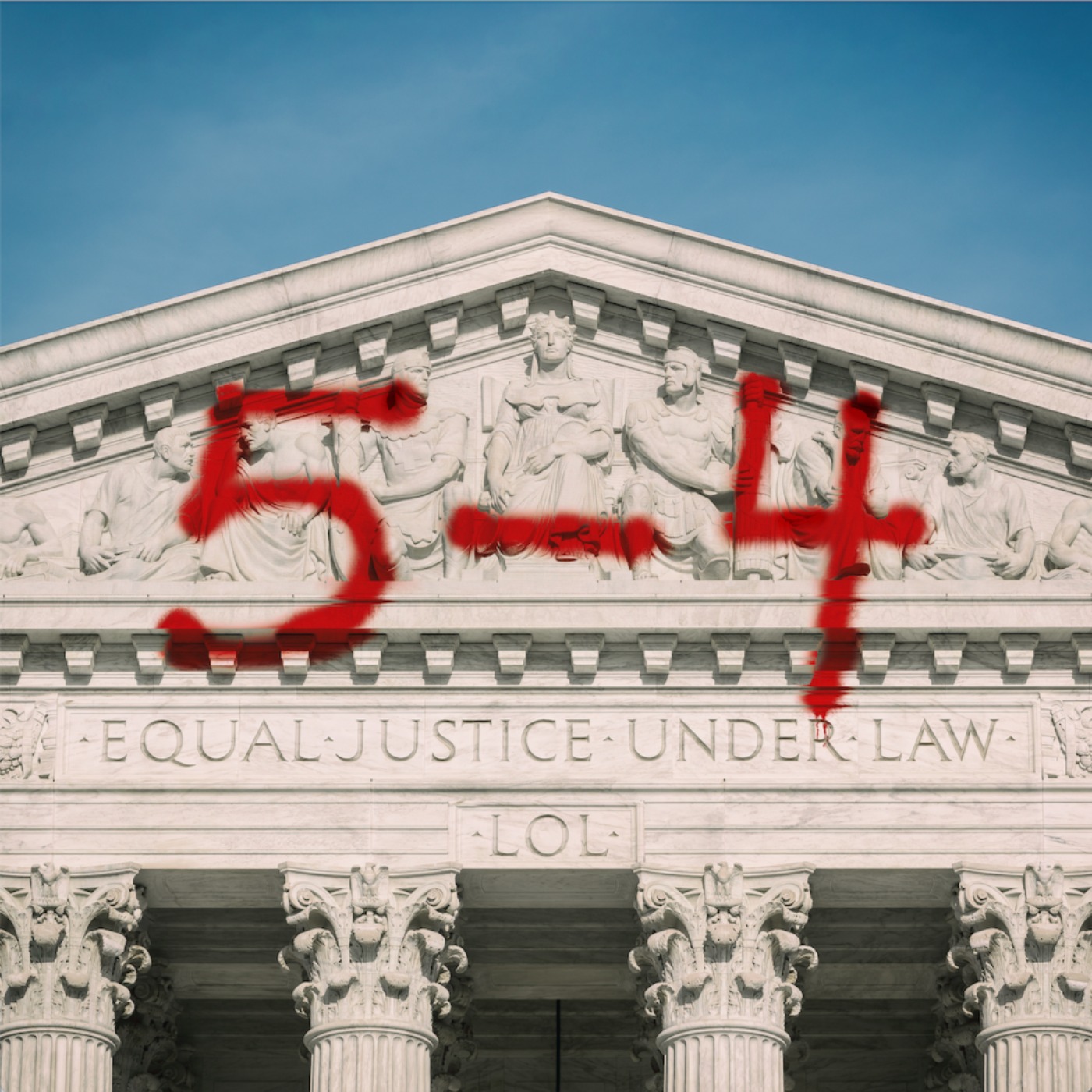Ewing v. California
The tension is palpable with the count tied at 3-2 … the defendant steps up to the plate and … OH! Swing and a miss! That's the third strike for our defendant which means the Court is going home with the win and the defendant is going to jail forever! Tax payers will also move down in the standings; they'll be footing the bill for senseless incarceration for 25 years to life. The 8th Amendment also takes a hit with this loss, moving down from "Constitutional law" to "that's just your opinion, man."
If you think this episode description is dumb, wait until you hear the rationale in the decision.
If you're not a 5-4 Premium member, you're not hearing every episode! To get exclusive Premium-only episodes, discounts on merch, access to our Slack community, and more, join at fivefourpod.com/support.
5 to 4 is presented by Prologue Projects. Rachel Ward is our producer. Leon Neyfakh and Andrew Parsons provide editorial support. Our production manager is Percia Verlin. Our website was designed by Peter Murphy. Our artwork is by Teddy Blanks at Chips NY, and our theme song is by Spatial Relations.
Follow Peter (@The_Law_Boy), Rhiannon (@AywaRhiannon) and Michael (@_FleerUltra) on Twitter. You can follow the show on Twitter and Instagram @fivefourpod.
Hosted on Acast. See acast.com/privacy for more information.
Advertising Inquiries: https://redcircle.com/brands
Press play and read along
Transcript
Transcript is processing—check back soon.

